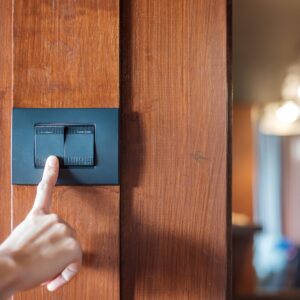According to the Environmental Protection Agency (EPA), Americans spend roughly 90 percent of their time indoors, where air pollutants are between 2-5 times higher than they are outdoors. The effects of indoor air pollution can range from headaches, dizziness, fatigue, heart disease, lung cancer, and exposure to asthma triggers such as pet dander, mold, dust mites, or secondhand smoke.
The EPA also notes that exposure to carbon monoxide and radon can be lethal (radon is the second leading cause of lung cancer). While we may not have a lot of control over the outdoor air quality, we can do our best to ensure that our home’s air quality is the best it can be. Check out the following tips to improve your home’s indoor air quality:
Ensure your HVAC system improves indoor air quality.
The best way to improve your home’s air quality is to get your HVAC system maintenance and installed by a company that takes indoor air pollution seriously. At Complete Heat and Air, they not only have skilled technicians to help you with all your air heating system, air conditioner system, and ventilation system needs; but they also have indoor air quality services.
Be sure to talk to your technician about air cleaners, air purifiers, and air humidifiers. Their HVAC filter is known for improving the air quality so much that it kills viruses, kills mold spores, reduces allergens and odors, and breaks down volatile organic compounds. The EPA warns against pollutants such as volatile organic compounds, pesticides, and mold.
Get some houseplants and make your home unique to you.
An easy way to improve air quality and get natural air fresheners is by getting some houseplants. According to HealthLine, not only are houseplants natural air purifiers, but they also reduce stress levels, increase productivity, and spark creativity. This means that houseplants can be an effective way of dealing with the stress of COVID-19 while decorating your home.
Whether it’s a new house or you don’t feel like the house you’ve been living in “feels like you,” you should make your house feel like home. By checking out 3 ways to make a house feel more like a home, you can find ways to make a new house feel like yours. For example, you could add elements you liked about an old home to your new house. Or you could find simple ways to make a big difference, such as upgrading appliances (like the kitchen stove), redoing the countertops, or simply going to the grocery store and filling a decorative bowl with fruit.
Bonus tips: Getting fresh linens and furnishings for the bathrooms and bedrooms can make these rooms feel completely new. Upgrading the living room with family photos and candles for fragrance is the easiest way to give this room a personal touch.
Keep up with replacing filters on your air purifiers.
WebMD notes that those that suffer from allergies and asthma could find relief with a HEPA filter on their air purifier to filter out pollutants such as tobacco smoke, mold, pollen, dust, and pet dander. They also recommend a HEPA-equipped vacuum cleaner, high-efficiency air filters on your furnace, and replacing carpeting with hard flooring and curtains with plastic blinds.
Keep your home clean.
While it’s a pain to keep your house clean, it’s a good idea to keep your indoor air pollution to a minimum. WebMD notes how not only are air pollutants present in the air, but they’re even more present on your rugs, bedding (such as pillows, throw pillows, sheets, blankets, etc.), curtains, upholstery, and resting on surfaces. Therefore, to ensure healthy air quality, homeowners need to keep clutter and debris to a minimum by cleaning the house regularly and frequently washing linens in hotter water.
Be careful with chemicals.
The EPA warns that a lot of household cleaners can introduce chemicals (“including volatile organic compounds”) directly into the air. Fireplaces can be another source of harmful chemicals if you’re not careful. Depending on the outdoor air quality in your area (check with local sources to see if there are high levels of pollution), you could benefit from occasionally enjoying some fresh air with open windows. A great way to ensure proper ventilation is to ask your HVAC installer about the best ways to achieve this. The best air quality in your home is key to preventing moisture that can cause mold.





